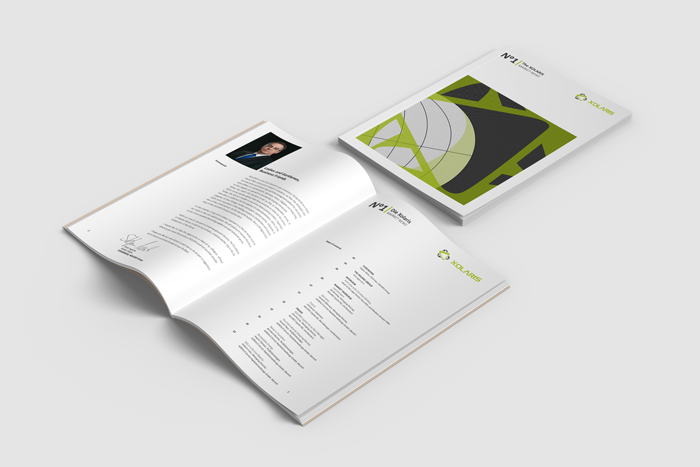XOLARIS Group2023-06-06T11:50:06+00:00
Lugano Business Forum on May 12th focused on investment into rebuilding of Ukraine brought together almost 400 participants from multiple industry fields and numerous countries.
While the main topic around recovery of Ukrainian post war economy was mainly focused on importance of private equity and venture capital investments and private and public sector funding, a separate panel organized by Xolaris Group put an accent on international mechanisms of foreign investment placements into Ukraine and specifically on such investment tools as regulated funds products.
While in present financial markets conditions numerous international institutional investors allocate to emerging market economies, Ukraine is good placed to take benefits from them. For example, according to latest markets overviews private investment branch of biggest Liechtenstein bank*, managing assets of 85 bln. EUR put a focus in their investment strategies on Emerging markets bonds due to higher investment returns overperforming the market, in the last and the coming years (covering among others Georgia, Armenia, Angola, Uzbekistan, Uruguay, Uganda) however in order to get access to foreign institutional funding companies need use an intermediary regulated placement structures issuing respective placement products to invest into private market segment.
Following other conference panels on Private Equity and Venture Capital Xolaris group launched discussion around that instruments, regulated investment vehicles to support foreign investment into Ukraine from European institutional investors and the benefits it represents for Ukrainian starting businesses in accessing international capital for financing IT companies, Construction and Public projects. Initially thought as a panel for Venture Capital enthusiasts and digital industry, it had been extended to meet other demand.
Increased inflation across US and EU, war in Ukraine, along with other global tensions in world trade resulted in limitation of the quantitative easing programs by central banks in US and EU with easily printed money, and switch to increasing refinancing rates to calm down global economy. Thus, era of cheap debt money is going to an end with equity funding coming back in demand by both investors and project initiators, comparing to debt funding. Highly increased rates again on the eve of the conference making the debt financing is not attractive as before (time of cheap debt is gone) that brings more to refocus the capital inflow demand for investment spending and refocusing project holders on access to the equity funding sources back again as fifteen to twenty years ago as an alternative to debt funding from such classical sources as IPO, Crowdfunding and other collective investment schemes like Funds.
The last tool, investment funds regulated vehicles, represent benefits of providing access to both, private and public capital markets, which makes easy access simultaneously to all investor type, professional capital givers, institutional money and retail investor market. Depending on the purpose and targeted audience there are multiple Funds versions like PE, RE, Infrastructure, Hedge and liquid market Funds, as alternative investment funding sources. Beyond of that they vary from jurisdiction to jurisdictions and regulation. Since Adoption of EU Alternative Investment Funds Directive by EU Commission back in 2013 the Alternative Investment Funds Market experienced constant growth taking share from the traditional liquid markets and hedging funds, due to extended asset investment restrictions, approaching almost same volumes of the capital market volumes as traditional funds. Majority of venture capital / private equity funding schemes had been working as a kind of privately held unregulated vehicles and sometimes asset securitization tools, while there are others operating as financially regulated vehicles supervised by public market conduct authorities. Then why start to talk about regulated funds today?
Purpose of discussion was then to share the experience of regulated funds placements from different jurisdictions: Luxembourg, Liechtenstein, Germany, Switzerland coupled with experience in management and restructuring state enterprises in Eastern Europe on example of Poland.
Thus, first topic of the panel was focused on what are regulated funds and their main difference to private investment schemes, their diversity and hidden value that could be unlocked by project initiators and project investors. And what are the benefits comparing to other regulated investment schemes for investors, project companies.
Limitation of QE programs along with hike in central Bank rates and inflation lead to an end of cheap debt funding creating more demand for other sources of funding for companies’ growth through equity raising by VC, IPO, Crowdfunding and regulated vehicles. While crowdfunding is reserved for small equity needs to launch startups at later stage there is a need for larger capital sources to ensure further growth. Unlike pure VC A, B, C rounds that provide leverage for interim growth, IPO give a benefit for financing large scaling of the successful business model bringing it to the right valuations volume to become unicorn in case of success.
However, cost and lengths of IPO procedures coupled along with required transparent management process implementation setting up of independent boards and multiple management committees makes an IPO hardly affordable for small and medium sized companies at growth stage, whereby regulated funds solutions set up within stable markets, provide more affordable options with same effect to reach growth funding either through equity or debt in comparable volumes from the same markets players as an IPO but in a much shorter term and at substantially lower cost. Based on shared experience from different jurisdictions, while Luxembourg nominally being the biggest on funds volumes side in Europe reaching 6 trln. EUR under funds management Liechtenstein currently providing one of best options where the funds can be launched within few weeks to reach broad spectrum of investor audience from retail to institutional investors across whole EU due to EU financial market passporting system.
Simultaneously regulated funds provide more efficiency due to management transparency process offering more reliability and trust to investors in investing the companies under supervision of independent managers in regulated funds vehicles comparing to purely private company investing.
That is exactly where Ukrainian enterprises could benefit from regulated funds structures to attract required capital for the company’s growth on European markets from European investors and ensure implementation of market standard governance mechanisms according to European standards.
Likewise state managed enterprises could have raise in management efficiency and transparency processes trough offering participation in debt funding or equity through EU regulated funds vehicles that would result in attractiveness for European investor pools to invest in public enterprises and support the economic recovery in Ukraine, with increased trust ensured by involvement into state managed enterprises of independent professional funds management companies.
In nutshell regulated funds provide for:
- Facilitate organic companies’ growth in establishing transparent corporate governance processes and create more efficiency in management processes of privately held and state-controlled companies though involvement of independent professional funds manager into the governance process.
- Facilitate efficient and easy access to European capital market from retail to institutional investors like an IPO but in a much efficient way across multiple countries.
- Offering tax efficient investment returns for both investor pools and project companies disregarding complex multi-jurisdictional corporate architecture.
- Offering for small and middle-sized companies to finance it growth through accessibility of equity and debt instruments provides efficient management control for asset holders like state or private controlled companies over the disposability of assets due to separation of pooled investor shares rights and general partnership/ principal rights at same ensuring passive investor trust through independent funds management company and governance processes implementation benefiting both classes.
- Initially presented for case of Ukraine, regulated funds is an efficient tool for direct financing into other emerging markets economies like Moldova, Georgia, Uzbekistan and others.
*information form open market sources relates to LGT Capital Partners strategies.


























